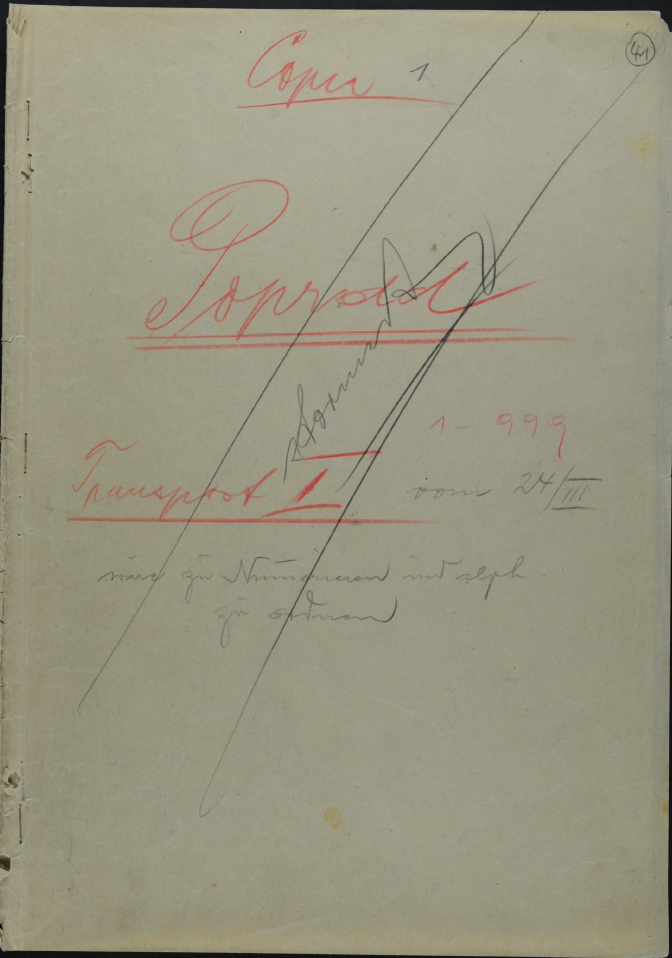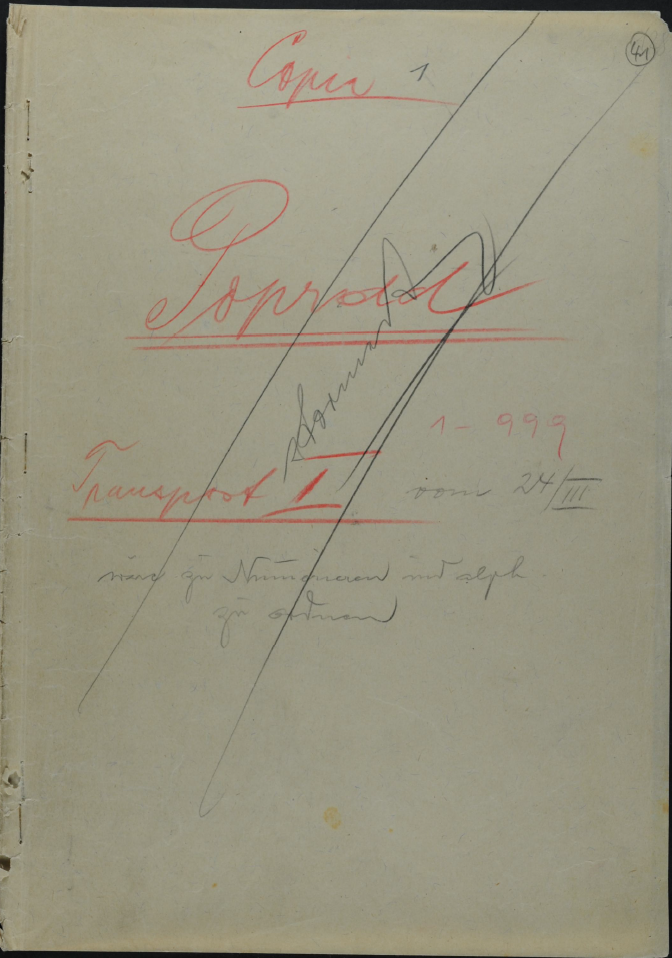“66% of millennials cannot say what Auschwitz was” even fewer know that the first Jewish transport to Auschwitz was 999 teenage girls and young women. Discover the truth behind this historical #MeToo moment and meet three survivors of the first transport, who are in their 90s, and their families.
SYNOPSIS
Now a book and a movie!
A bright 16-year-old with big dreams, elfin faced, Edith Grosman, her sister, Leah, and 999 other innocent young women reported for national service duty and ended up in Auschwitz.
“There was nothing there when we arrived. It was an empty place!”
Why take girls? If you want to destroy a race of people annihilate fertile, young women. Archival footage and photographs of rare documents reveal: a camp regime of starvation—the equivalent of one tin of cat food per day, per girl; the Slovak government’s payment to the Nazis of $200.00 per girl.
Juxtaposing B&W footage with color, children tell their mothers’ stories: Marta was sterilized by Dr. Mengele, her daughter was adopted. Ill with Typhus, Ida’s friends hid her in mounds of clothes. The beautiful Helena Citronova had an affair with SS Franz Wunsch. Postcards sent to and from Birkenau reveal a dramatic correspondence that ends abruptly. On Chanukah 1942, 10,000 women were taken to the gas, Edith’s sister, Leah, was one. Afterwards “the camp was empty.”
“We weren’t even adults. We were teenagers, young enough to throw temper tantrums, now we were seeing girls our age dying.”
Now 94, Edith asks, “Why do intelligent people hate? War serves no one.”
It takes a minion of ten men to say Kaddish; our film ends with women saying Kaddish in the very place where Edith’s sister and thousands of other girls, died. “I will do anything to remember the girls.”
Will you?
Director Statement
you need to see it. Your daughter needs to see it. Your husband, partner, children, students... When you meet these girls you will fall in love with them, as I have. You will see them as the teenagers they were, the innocent girls who sang patriotic songs on their way to perform mandatory government service that would become what the world now calls the Holocaust. When they got to Auschwitz "it was an empty place. Empty!" Edith Grosman, now 94 tells us.
Supporter Statement
Supported by the United Jewish Foundation, Jewish Memorial Council UK, Jewish Federation of Cleveland and Chabad of Southampton.
ABOUT FILMMAKER(S)
 Heather Dune Macadam
Heather Dune Macadam
Award-winning author of the best selling memoir on the first transport: Rena’s Promise (Beacon 1995) and the upcoming book 999 (Kensington/Citadel 2020), Ms. Macadam is foremost US scholar on the first Jewish Transport to Auschwitz. A former professor, she has taught journalism, creative nonfiction, and screenwriting for over 20 years. She is the director of Rena’s Promise Foundation, and currently writing the seminal book on the first transport to pair with this film - 999: The Extraordinary Young Women on the First Official Transport to Auschwitz. She is an international speaker and advocate for women’s rights and women’s history.
 Stephen Hopkins
Stephen Hopkins
Director for European Locations and Co-Producer: Stephen Hopkins has produced and directed documentary films for more than 30 years, 15 of which were with Granada Television, covering everything from politics, history and popular music.
Based in the UK, Hopkins has worked for all the major UK broadcasters – BBC, ITV, C4, Sky – and US strands such as Nova and the Discovery Channel. In semi-retirement now, the following is Hopkins most recent work:
• “Human Cloning” WGBH-Boston
filmed in the USA, UK, Italy and the Middle East, for Britain’s C4 network (Peter William Television)
• “On the Record” BBC4
a 60-minute study of the life and work of the distinguished American writer and war correspondent, Martha Gellhorn, shot with war reporter, Marie Colvin. “Dachau,” Gellhorn once wrote, “changed everything.” It changed everything for Stephen Hopkins, as well. Stephen has donated much of his time and expertise (working far beneath his daily rate) in order to help promote the mission of 999
• Cities of Peace—Auschwitz, will chronicle the inception and creation of a painting honoring the 75th Anniversary of the Liberation of Auschwitz and the town of Osweicim; and 999-The First Transport, which will reveal the shocking history of the first 999 women and girls deported to Auschwitz on 25 March 1942.
Pandemic', an award-winning one hour documentary for BBC Horizon
the search for the cause of the 1918 influenza pandemic in Hong Kong, Norway the USA and the UK.
RELATED LINKS
PROMOTE THIS PROJECT
Put a donation widget on your site. Click here for code.
ABOUT YOUR DONATION
Women Make Movies (WMM), Inc. is a 501(c)(3) non-profit media arts organization registered with the New York Charities Bureau of New York State and accepts charitable donations on behalf of this project. Your donation will be spent by the filmmaker(s) toward the production and completion of this media project. No services or goods are provided by Women Make Movies, the filmmaker(s) or anyone else associated with this project in exchange for your charitable donation.
Your contributions are tax deductible to the fullest extent of the law, and a confirmation of your donation will be sent via email. WMM will send you an acknowledgement letter in the mail to the address listed for tax purposes.
